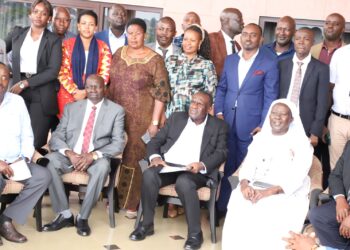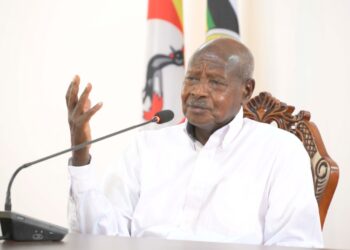Rwanda has signed a Rwf 360 billion (US$400m) deal to produce Liquefied Petroleum Gas from Lake Kivu. With an aim of cutting down on natural gas import bill, Rwanda’s Mines, Petroleum and Gas Board (RMB), and Rwanda Development Board (RDB) have signed a deal with Gasmeth Energy Limited to extract and process methane gas from Lake Kivu.
Gasmeth Energy plans to finance, construct and maintain a gas extraction, processing and compression project.
The project will include a gas extraction plant on the lake, also known as Africa’s “Killer Lakes.”
Gasmeth Energy will also extract and separate methane gas from water and thereafter transport it to an onshore plant where they will compress it. Rwanda already has two companies (Contour Global and Symbion Power) that extract gas from Lake Kivu to power electricity plants. Lake Kivu is located on Rwanda’s border with the Democratic Republic of Congo. But the Lake is known for emitting menthane substance which is dangerous for dwellers around the Lake.
Rwanda sees the new deal as a solution to natural gas import bill, according to Chief Executive Officer of RDB, Clare Akamanzi.
“We therefore welcome the Gasmeth Energy project because not only will it reduce the risk of a methane gas explosion, it will also provide jobs, reduce Rwanda’s natural gas import bill, increase gas exports and provide cleaner cooking fuel for Rwandans,” she said.
In 2017, Rwanda imported 10 million kilogrammes of Liquefied Petroleum Gas (LPG) – costing the country a huge bill.
The compressed natural gas will be distributed on both the local and international market, according to RDB. The extraction of the natural gas, says RDB CEO Akamanzi, will boost the country’s environmental policy.
“Natural gas is the most environmentally friendly fossil fuel. The natural gas produced by the plant will help reduce the use of wood and charcoal as a cooking fuel as well as diesel fuel in the automotive industry. The deep water of Lake Kivu contains dissolved methane and carbon dioxide.
These gases pose a serious risk to all the oxygen dependent life in the vicinity of the lake as they continue to build up. However, methane gas also provides an energy resource valued at billions of dollars for the Kivu region,” she said.
Among the impacts she said will result from the development include creation of employment, reduce Rwanda’s natural gas import bill, increase gas exports and provide cleaner cooking fuel. To realise this, efforts have been made to attract private investors to take on some of the energy production activities as well as establish alternative sources of energy.
The methane in Lake Kivu is estimated to have capacity to generate 700 MW of electricity over a period of 55 years. Rwanda’s share of the total generation potential is about 350 MW, with the rest being the share of DR Congo.
Do you have a story in your community or an opinion to share with us: Email us at editorial@watchdoguganda.com











